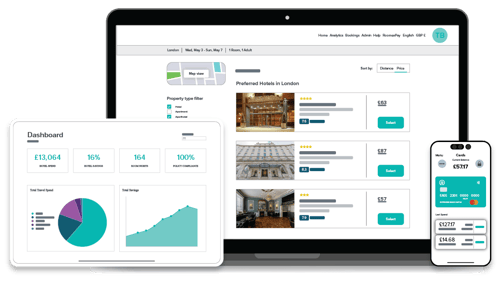A by-product of being a team manager is the responsibility that goes with the territory. However, remaining professional isn’t solely reserved for the office. As any
corporate travel manager will explain, professional conduct extends beyond the boardroom to work trips too.
With duty travel on the rise in all industries, from construction to merchandise, it’s important to understand the importance of professional conduct. In doing so, you’ll be able to maintain a professional approach at all times and avoid unnecessary disciplinary action.
When in doubt, your corporate travel manager or HR manager should be able to offer guidance. If you have a corporate internet, a copy of your corporate guidebook should be available as a handy go-to.
Typically, there are six guiding principles which apply to business etiquette on work travel. Here we look at these in greater detail:
1. Be Professional
Acting in a professional manner is something we’re familiar with in the workplace. This means acting sensitively to colleagues, not making individuals feel uncomfortable and not abusing power for personal gain.
Naturally, the same applies outside the workplace.
Meeting clients and working with colleagues remotely all requires the same professional conduct you’d exercise in the office. It’s something to keep in mind at all times.
2. Remain Respectful
Being respectful in the workplace goes beyond guidelines written by corporate travel managers – it’s basic manners.
Simply put, respect is about treating everyone with courtesy and politeness. In doing so, you’ll create a culture that is receptive to openness, encouraging everyone to feel comfortable to contribute and express their views.
This should be maintained out of the office too. Being on location is no excuse to treat colleagues or clients any differently.
3. Room Sharing
On occasion, colleagues may have to share rooms for work travel. If this makes you feel uncomfortable or awkward, it’s best to raise the issue in advance with your HR or corporate travel manager.
Even with best intentions, it can be a challenging experience to share a private space with someone you know in a professional capacity.
To avoid any misinterpretation of behaviour, it’s best to keep alcohol consumption to a limit, and remain respectful of behaviours that may be disruptive or unpleasant. If you’re on site working antisocial hours, perhaps suggest co-sharing with a colleague on the same schedule to avoid unnecessary disruption.
4. Time for Disclosures?
There are times in business where you may need to disclose certain details if there’s a conflict of interest. This might be a romantic relationship or personal relationship with a colleague or client. As you’d expect this may be more problematic when you’re travelling together, sharing a room or mixing for business.
There are usually set rules around this laid out in your company handbook. If these are however unclear, your corporate travel manager or HR manager can be helpful to discuss the matter with in confidence.
5. Cultural and Professional Sensitivity
Sometimes work travel requires greater sensitivity than it might inside the office.
The first of these to consider is cultural sensitivity. It’s important to remain respectful to cultural sensitives when working out of the office. This may apply to foreign visitors visiting you or vice versa.
When in doubt, do some research on local customs and approaches to work, which may impact your day-to-day. From presenting business cards, to offering gifts, to typical working hours. It’s best to be prepared and equipped.
This can also extend to professional sensitivity. For instance, if a regional office is undergoing an organisational restructure, this could potentially make it a more hostile experience for head office staff. Remaining sensitive to the greater issues at play is therefore paramount.
6. Entertainment Etiquette
Finally, one of the most important points to consider is hospitality and entertainment. There’s a few grey areas that are worth highlighting as a priority.
The first of these is after-work drinks. Being sociable is to be encouraged, but know your limits. Excessive alcohol consumption is a big no-no in the presence of colleagues and clients. The same rules of behaviour apply as those in the office, particularly in the wake of the #MeToo movement.
Another common area of confusion is the issue of expenses. If you’re attending an organised work event that requires a form of payment, it should be clear from the offset who’s responsible for this. Each company will have its own rules, although it tends to be the most senior person in attendance. In any case, do check which your corporate travel manager beforehand.
Similarly, be aware of the guidelines around spending and claiming money back. There are usually limits in place for entertainment, which includes per diems on business travel.
On a final note, be mindful of how your company operates its expenses. Are you expected to use petty cash or your own money for payment? Do you need to keep receipts and when must these be processed by? Equip yourself with this knowledge and you’ll benefit greatly in the long run.
Tags:

October 24, 2019

